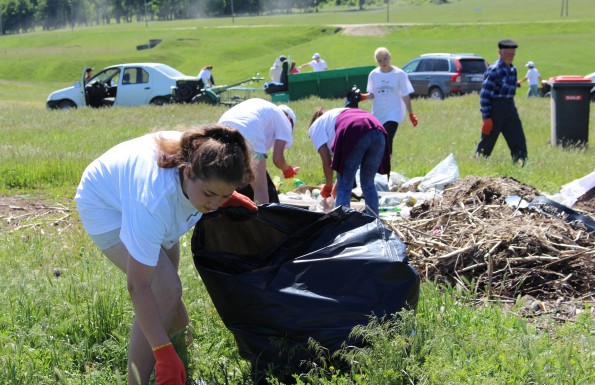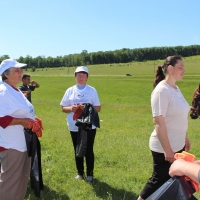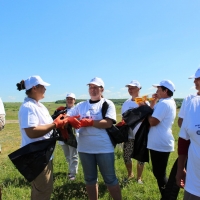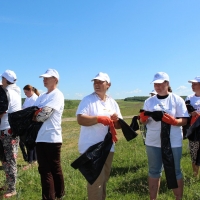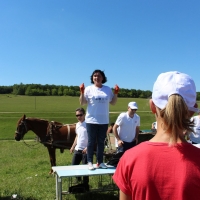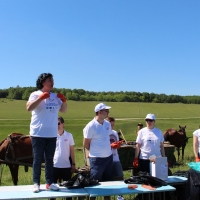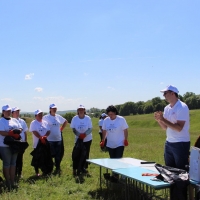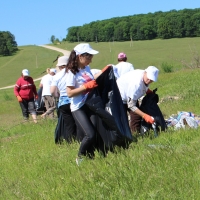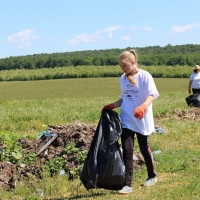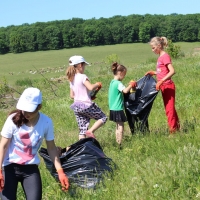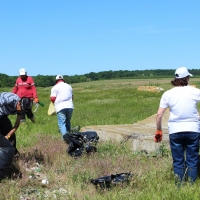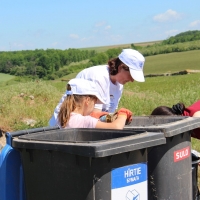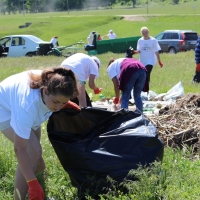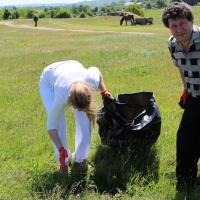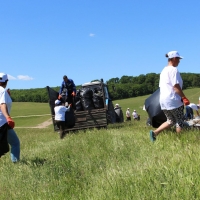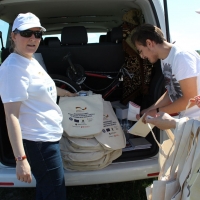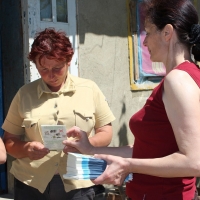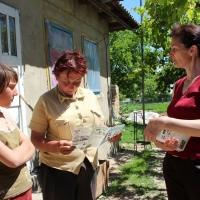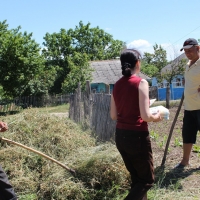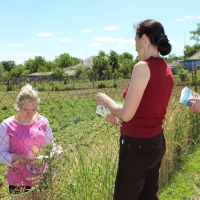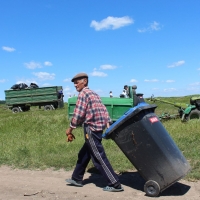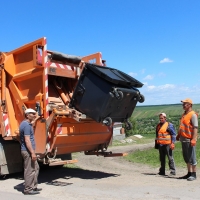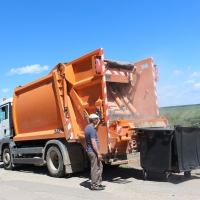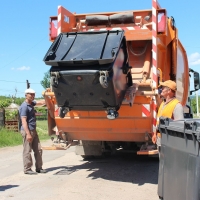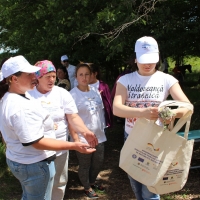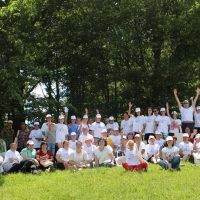On 3 June 2017, the team of ‚Modernization of Local Public Services in the Republic of Moldova’ (MLPS) project organised together with the administration of Cobilea village, Soldanesti rayon and JSC ‚Salubritate Soldanesti’ a sanitation event within the territory of the locality. Over 100 inhabitants of Cobilea village took part in the event.
Angela Ababei, mayor of Cobilea village: ‘I am very proud that the people of Cobilea responded to the initiative to come and participate in this activity. I believe, that the presence of these over 100 residents here indicates that people care for environment. I am sure that this campaign will have a positive impact on the locality and inhabitants of Cobilea. Those who could not be with us here today, received infromative leaflets and we hope they will adopt a serious attitude towards sanitation in general as people have to be aware of waste being collected separately by categories’.
Mihai Ioncu, director of JSC ‘Salubritate Soldanesti’: ‘I was sure we will have a successful event. A lot of people took part in it meaning the population has a great interest for the sanitation issue. We’ve never thought we could collect so much recyclabel waste in a such a small place. We hope the event will have a positive impact on the villagers’.
At the end of the sanitation activity there were collected around 250 big bin liners and 8 waste bins of separated waste: paper, glass, plastic.
Besides sanitation activities, the event served, also, as an information action regarding the separate collection of waste for the inhabitants of the village. Thus, over 100 informative leaflets and other promo materials such as T-shirts, caps, bags, etc. were distibuted to the people of Cobilea.
The event was organised in the context of the World Evironment Day which is marked every year on 5 June. It was established by the United Nations General Assembly in 1972.
The project ‘Modernization of Local Public Services in the Republic of Moldova’ (MLPS) is implemented by the German Development Cooperation through GIZ and is financially supported by the German Ministry of Economic Cooperation and Development (BMZ), the Swedish Government, the Romanian Government, the European Union and the Swiss Agency for Development and Cooperation (SDC).


